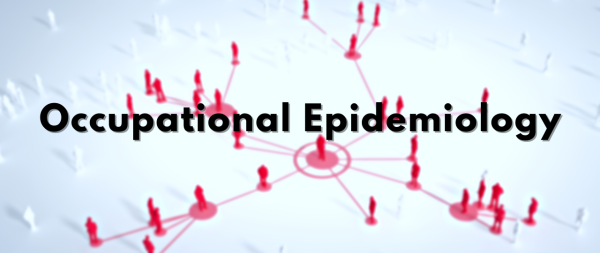
Occupational Epidemiology is the study of workers, the conditions that they experience in the workplace, and associated illnesses and injuries.
The mission of this newly funded program as one of the core programs in the Southern California NIOSH Education and Research Center (SCERC) is to train outstanding occupational health researchers who will develop and apply the theory, methods, and substance of epidemiology to workers’ safety and health. The Occupational Epidemiology program is housed at both UCLA and UC Irvine.
Training requirements include coursework and practicum experiences. It also culminates in high-quality research on Occupational Health & Safety (OHS) through the dissertation experience. The program is designed to train PhD students with scientific and statistical methods for collecting and analyzing data, eventually to understand the causes and occurrence of occupational injury and disease. Trainees should be prepared to contribute to improvements in worker health and safety, and support regulation and control of occupational exposures.
Doctoral training in Occupational Epidemiology is offered at the UCLA Fielding School of Public Health with the Epidemiology and Environmental Health Sciences departments, as well as at the UCI Program in Public Health with the Environmental and Occupational Health Sciences department. At both campuses, the departments of Epidemiology and Environmental Health Sciences collaborate closely with substantial overlap in faculty appointments. Together, the UCI-UCLA programs in Occupational Epidemiology encompass a wide range of applications of epidemiology in occupational health, including surveillance, etiologic research, policy evaluation, and quantitative risk assessment, as well as a focus on development of novel quantitative methods.
This new program leverages opportunities and resources from both partner institutions to provide high level of support and research engagement for trainees in the SCERC and service to the diverse community in Southern California.
Occupational Epidemiology interdisciplinary training in the SCERC is essential to cover a wide range of health outcomes and exposures, with common core training on physical, ergonomic, chemical, biological, and psychosocial hazards in the workplace and epidemiological methods for their study. Faculty are applying advanced techniques to study exposure pathways, as well as novel statistical models for diseases. Methods for the assessment of exposure, including both statistical methodologies and measurement techniques ranging from biological markers to traditional workplace environmental monitoring, are another important area of research for several faculty members; others are involved with such areas as quantitative risk assessment, meta-analysis, statistical modeling, and the use of geographic information systems. Program faculty are engaged in real world problems and take an active role in scientific communication and outreach to achieve these objectives.
Notable strengths of the training program are in the following major topical areas: Occupational causes of cancer; Epidemiologic research methods; Occupational Exposures and Reproductive Health; Occupational Respiratory Diseases; Occupational Exposures and Mental Disorders; and Work-related Cardiovascular Disease.
Faculty
Dr. David Richardson
Co-Director, OE Prgram, UCI
Associate Dean of Research
Environmental & Occupational Health,
UC Irvine: Public Health
dbricha1@hs.uci.edu
949-824-5148
Dr. Jian Li
Co-Director, OE Program, UCLA
Professor
Environmental Health Sciences, Epidemiology, UCLA School of Public Health
UCLA School of Nursing
jianli2019@ucla.edu
310-206-3788
Partnered Departments
Environmental & Occupational Health, UC Irvine Public Health
Educational Resources
We had the fortune of multiple guest speakers at our Interdisciplinary Occupational Health Practice class during Winter 2024 and Work and Health Course during Spring 2025. Below are presentations they've shared.




